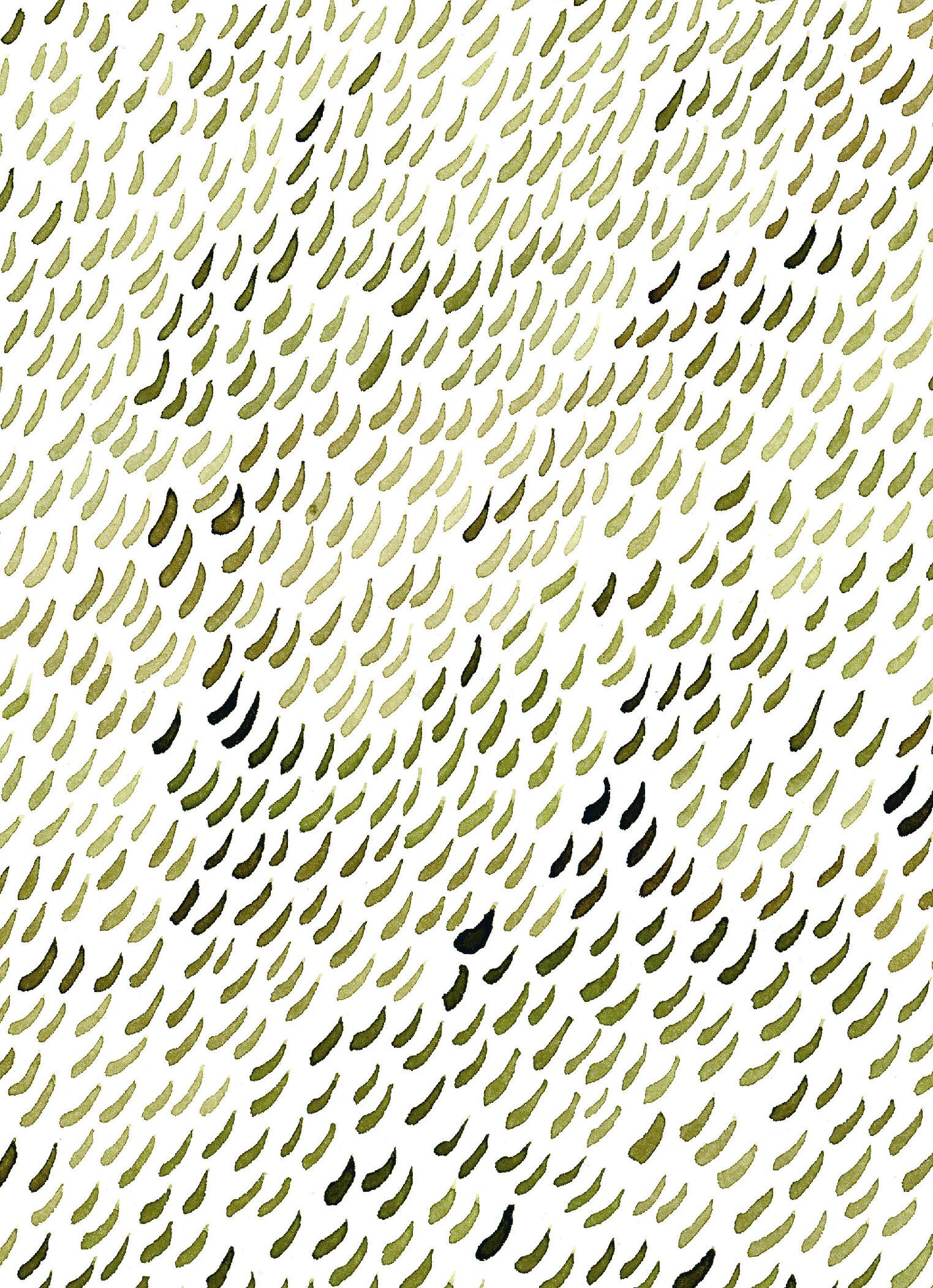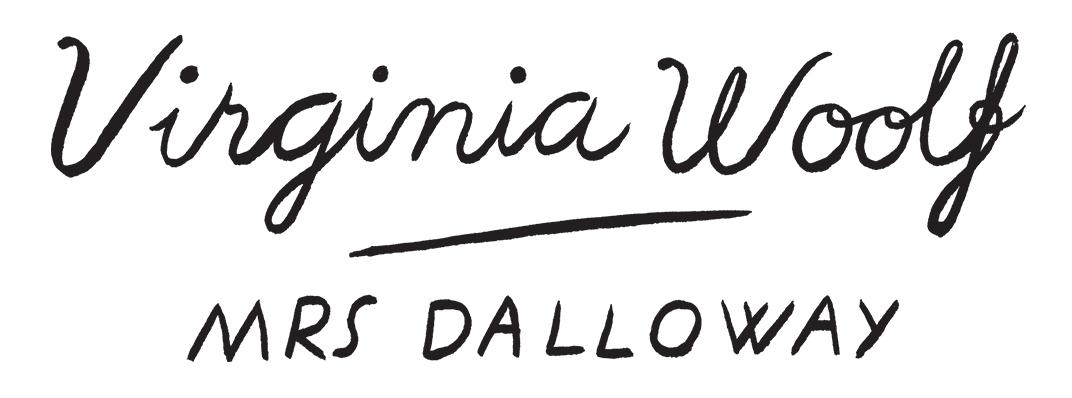




Virginia Woolf was born in London in 1882, the daughter of Sir Leslie Stephen, first editor of The Dictionary of National Biography. After his death in 1904 Virginia and her sister, the painter Vanessa Bell, moved to Bloomsbury and became the centre of ‘The Bloomsbury Group’. This informal collective of artists and writers, which included Lytton Strachey and Roger Fry, exerted a powerful influence over early twentieth-century British culture.
In 1912 Virginia married Leonard Woolf, a writer and social reformer. Three years later, her first novel, The Voyage Out, was published, followed by Night and Day (1919) and Jacob’s Room (1922). These first novels show the development of Virginia Woolf’s distinctive and innovative narrative style. It was during this time that she and Leonard Woolf founded The Hogarth Press with the publication of the co-authored Two Stories in 1917, hand-printed in the dining room of their house in Surrey. The majority of Virginia Woolf’s work was first published by The Hogarth Press, and these original texts are now available, together with her selected letters and diaries, from Vintage Classics, which belongs to the publishing group that Hogarth became part of in 1987.
Between 1925 and 1931 Virginia Woolf produced what are now regarded as her finest masterpieces, from Mrs Dalloway (1925) to the poetic and highly experimental novel The Waves (1931). She also maintained an astonishing output of literary criticism, short fiction, journalism and biography, including the playfully subversive Orlando (1928) and A Room of One’s Own (1929), a passionate feminist essay. This intense creative productivity was often matched by periods of mental illness, from which she had suffered since her mother’s death in 1895. On 28 March 1941, a few months before the publication of her final novel, Between the Acts, Virginia Woolf committed suicide.
ALSO BY VIRGINIA WOOLF
Novels
The Voyage Out
Night and Day
Jacob’s Room
To the Lighthouse
Orlando
The Waves
The Years
Between the Acts
Shorter Fiction
The Haunted House: The Complete Shorter Fiction
Non-Fiction and Other Works
Flush
Roger Fry
A Room of One’s Own and Three Guineas
The Common Reader Vols. 1 and 2
Selected Diaries (edited by Anne Olivier Bell)
Selected Letters (edited by Joanne Trautmann Banks)
Street Haunting and Other Essays (edited by Stuart N. Clarke)

20 Vauxhall Bridge Road, London SW1V 2SA
Vintage Classics is part of the Penguin Random House group of companies whose addresses can be found at global.penguinrandomhouse.com

Introduction copyright © Carol Ann Duffy 2000
First published in Great Britain by The Hogarth Press in 1925 penguin.co.uk/vintage
A CIP catalogue record for this book is available from the British Library
ISBN 9781784870867
Typeset in India by Thomson Digital Pvt Ltd, Noida, Delhi
Printed and bound in Great Britain by Clays Ltd, St Ives Plc
Penguin Random House is committed to a sustainable future for our business, our readers and our planet. This book is made from Forest Stewardship Council® certified paper.
The first English edition of Mrs Dalloway was published by Leonard and Virginia Woolf at the Hogarth Press on 14th May 1925.
In people’s eyes, in the swing, tramp, and trudge; in the bellow and the uproar; the carriages, motor cars, omnibuses, vans, sandwich men shuffling and swinging; brass bands; barrel organs; in the triumph and the jingle and the strange high singing of some aeroplanes overhead was what she loved; life; London; this moment in June.
Virginia Woolf’s small masterpiece Mrs Dalloway was conceived of and written between 1922 and 1924, after she had read James Joyce’s Ulysses and had returned from leafy Richmond to live in Tavistock Square in Bloomsbury. Like Ulysses, Woolf’s novel takes place in a single day. The city is London in the summer of 1923, five years after the end of World War I. Mrs Dalloway, a ‘perfect hostess’ in her early fifties, is preparing for one of her regular fashionable parties when her first lover, Peter Walsh, appears out of the blue from India. His arrival triggers in Clarissa Dalloway both vivid memories of the past and intense responses to the present. She remembers her family home in Bourton where she rejected Walsh in favour of an uneventful marriage to the safe, respectable politician Richard Dalloway. She resents the puzzling
friendship between her daughter Elizabeth, seventeen, ‘like a hyacinth sheathed in glossy green, with buds just tinted,’ and her tutor, the dowdy, mackintoshed religious fanatic Miss Doris Kilman. Meanwhile, the fatally disturbed and shell-shocked Septimus Warren Smith, whom Clarissa will never meet, passes in anguish through the same charged hours towards his last agony. His fate speaks profoundly to Clarissa when she hears of it at her party: ‘Somehow it was her disaster – her disgrace. It was her punishment to see sink and disappear here a man, there a woman, in this profound darkness, and she forced to stand here in her evening dress.’
Mrs Dalloway is a poet’s novel – by which I mean that it speaks clearly to the poet in the reader. Virginia Woolf’s words here, in one of her most accessible books, make up the language of what life feels like. When Elizabeth Dalloway leaves the difficult lovestruck Miss Kilman behind in the cafe, the sense of relief and youth and freedom described is breathtaking – and yet Woolf’s character is simply catching a bus:
She took a seat on top.The impetuous creature—a pirate – started forward, sprang away; she had to hold the rail to steady herself, for a pirate it was, reckless, unscrupulous, bearing down ruthlessly, circumventing dangerously, boldly snatching a passenger, or ignoring a passenger, squeezing eel-like and arrogant in between, and then rushing insolently, all sails spread, up Whitehall. And did Elizabeth give one thought to poor Miss Kilman who loved her without jealousy, to whom she had been a fawn in the open, a moon in a glade? She was delighted to be free. The fresh air was so delicious.
We carry poetry, even if we do not write it or read it, inside us and Woolf is a writer who can remind us of this or show us for the
first time. She is able, through the suffered brilliance of her writing, to unlock for us what we mutely know. Her lyric intensity allows her, and us as her readers, to stand inside the lived moment – a woman buying flowers for a party; a couple on a park bench looking up at a skywriting plane; we can see the ‘smoke curtsying’ at a picnic or Buckingham Palace ‘like an old prima donna facing the audience all in white’. Her terrifying sensitivity, which resulted in well-documented periods of ill health throughout her life of 59 years, was intimately and crucially bound up with her creative life. This is why the reader can enter the states of consciousness of Virginia Woolf’s characters in a way which can evoke the shock of the new:
The waitress came. One had to pay at the desk, Elizabeth said, and went off, drawing out, so Miss Kilman felt, the very entrails of her body, stretching them as she crossed the room, and then, with a final twist, bowing her head very politely, she went. She had gone. Miss Kilman sat at the marble table among the éclairs, stricken once, twice, thrice by shocks of suffering.
A writer whose language truly possesses its subject is often powerfully attracted to place. In Mrs Dalloway London itself is almost a character. Woolf shows us here that where we live is one of the ways of understanding who we are. In this novel (‘I like London for writing it’) England’s capital is alive on the page, a beloved thing:
. . . the traffic thinned; motor cars, tinkling, darting, succeeded the lumber of vans; and here and there among the thick foliage of the squares an intense light hung. I resign, the evening seemed to say, as it paled and faded above the battlements and prominences, moulded, pointed, of hotel, flat, and block of shops, I fade, she
was beginning, I disappear, but London would have none of it, and rushed her bayonets into the sky, pinioned her, constrained her to partnership in her revelry.
Punctuated by the chimes of Big Ben, their ‘leaden circles’, the radiant hours of Mrs Dalloway draw the reader into a deeper understanding of the workings and meanings of time in our lives. Although the world described here, with its holland bags for chandeliers, its housemaids and clerks and Bartlett pears for pudding, has long vanished, Virginia Woolf’s depiction of the passage of time, where passion and memory, or apprehension and despair, meet, offers as much psychological insight to the twenty-first-century reader as it did to the reader in 1925. Her novel is a vivid reminder to us, should we need one, that some of our best poets have written in prose:
Absorbing, mysterious, of infinite richness, this life. And in the large square where the cabs shot and swerved so quick, there were loitering couples, dallying, embracing, shrunk up under the shower of a tree; that was moving; so silent, so absorbed, that one passed, discreetly, timidly, as if in the presence of some sacred ceremony to interrupt which would have been impious. That was interesting. And so on into the flare and glare.
Carol Ann Duffy January, 2000
mrs dalloway
Mrs Dalloway said she would buy the flowers herself. For Lucy had her work cut out for her. The doors would be taken off their hinges; Rumpelmayer’s men were coming. And then, thought Clarissa Dalloway, what a morning—fresh as if issued to children on a beach.
What a lark! What a plunge! For so it had always seemed to her when, with a little squeak of the hinges, which she could hear now, she had burst open the French windows and plunged at Bourton into the open air. How fresh, how calm, stiller than this of course, the air was in the early morning; like the flap of a wave; the kiss of a wave; chill and sharp and yet (for a girl of eighteen as she then was) solemn, feeling as she did, standing there at the open window, that something awful was about to happen; looking at the flowers, at the trees with the smoke winding off them and the rooks rising, falling; standing and looking until Peter Walsh said, ‘Musing among the vegetables?’—was that it?—‘I prefer men to cauliflowers’—was that it? He must have said it at breakfast one morning when she had gone out on to the terrace—Peter Walsh. He would be back from India one of these days, June or July, she forgot which, for his letters were awfully dull; it was his sayings one remembered; his eyes, his
pocket-knife, his smile, his grumpiness and, when millions of things had utterly vanished—how strange it was!—a few sayings like this about cabbages.
She stiffened a little on the kerb, waiting for Durtnall’s van to pass. A charming woman, Scrope Purvis thought her (knowing her as one does know people who live next door to one in Westminster); a touch of the bird about her, of the jay, blue-green, light, vivacious, though she was over fifty, and grown very white since her illness. There she perched, never seeing him, waiting to cross, very upright.
For having lived in Westminster—how many years now? over twenty,—one feels even in the midst of the traffic, or waking at night, Clarissa was positive, a particular hush, or solemnity; an indescribable pause; a suspense (but that might be her heart, affected, they said, by influenza) before Big Ben strikes. There! Out it boomed. First a warning, musical; then the hour, irrevocable. The leaden circles dissolved in the air. Such fools we are, she thought, crossing Victoria Street. For Heaven only knows why one loves it so, how one sees it so, making it up, building it round one, tumbling it, creating it every moment afresh; but the veriest frumps, the most dejected of miseries sitting on door steps (drink their downfall) do the same; can’t be dealt with, she felt positive, by Acts of Parliament for that very reason: they love life. In people’s eyes, in the swing, tramp, and trudge; in the bellow and the uproar; the carriages, motor cars, omnibuses, vans, sandwich men shuffling and swinging; brass bands; barrel organs; in the triumph and the jingle and the strange high singing of some aeroplane overhead was what she loved; life; London; this moment of June.
For it was the middle of June. The War was over, except for some one like Mrs Foxcroft at the Embassy last night eating her heart out because that nice boy was killed and now the old Manor House
must go to a cousin; or Lady Bexborough who opened a bazaar, they said, with the telegram in her hand, John, her favourite, killed; but it was over; thank Heaven—over. It was June. The King and Queen were at the Palace. And everywhere, though it was still so early, there was a beating, a stirring of galloping ponies, tapping of cricket bats; Lords, Ascot, Ranelagh and all the rest of it; wrapped in the soft mesh of the grey-blue morning air, which, as the day wore on, would unwind them, and set down on their lawns and pitches the bouncing ponies, whose forefeet just struck the ground and up they sprung, the whirling young men, and laughing girls in their transparent muslins who, even now, after dancing all night, were taking their absurd woolly dogs for a run; and even now, at this hour, discreet old dowagers were shooting out in their motor cars on errands of mystery; and the shopkeepers were fidgeting in their windows with their paste and diamonds, their lovely old sea-green brooches in eighteenth-century settings to tempt Americans (but one must economise, not buy things rashly for Elizabeth), and she, too, loving it as she did with an absurd and faithful passion, being part of it, since her people were courtiers once in the time of the Georges, she, too, was going that very night to kindle and illuminate; to give her party. But how strange, on entering the Park, the silence; the mist; the hum; the slow-swimming happy ducks; the pouched birds waddling; and who should be coming along with his back against the Government buildings, most appropriately, carrying a despatch box stamped with the Royal Arms, who but Hugh Whitbread; her old friend Hugh—the admirable Hugh!
‘Good-morning to you, Clarissa!’ said Hugh, rather extravagantly, for they had known each other as children. ‘Where are you off to?’
‘I love walking in London,’ said Mrs Dalloway. ‘Really, it’s better than walking in the country.’